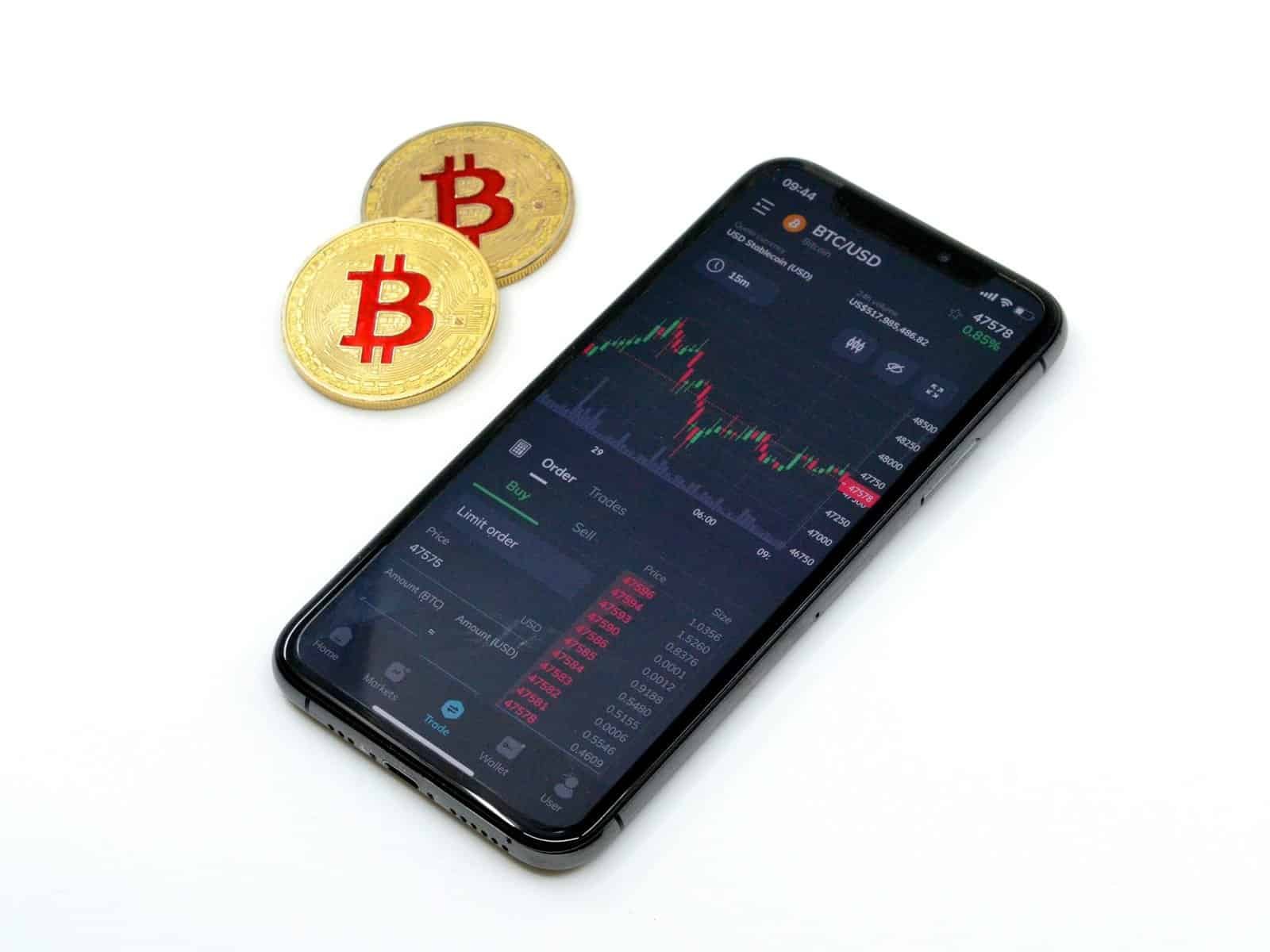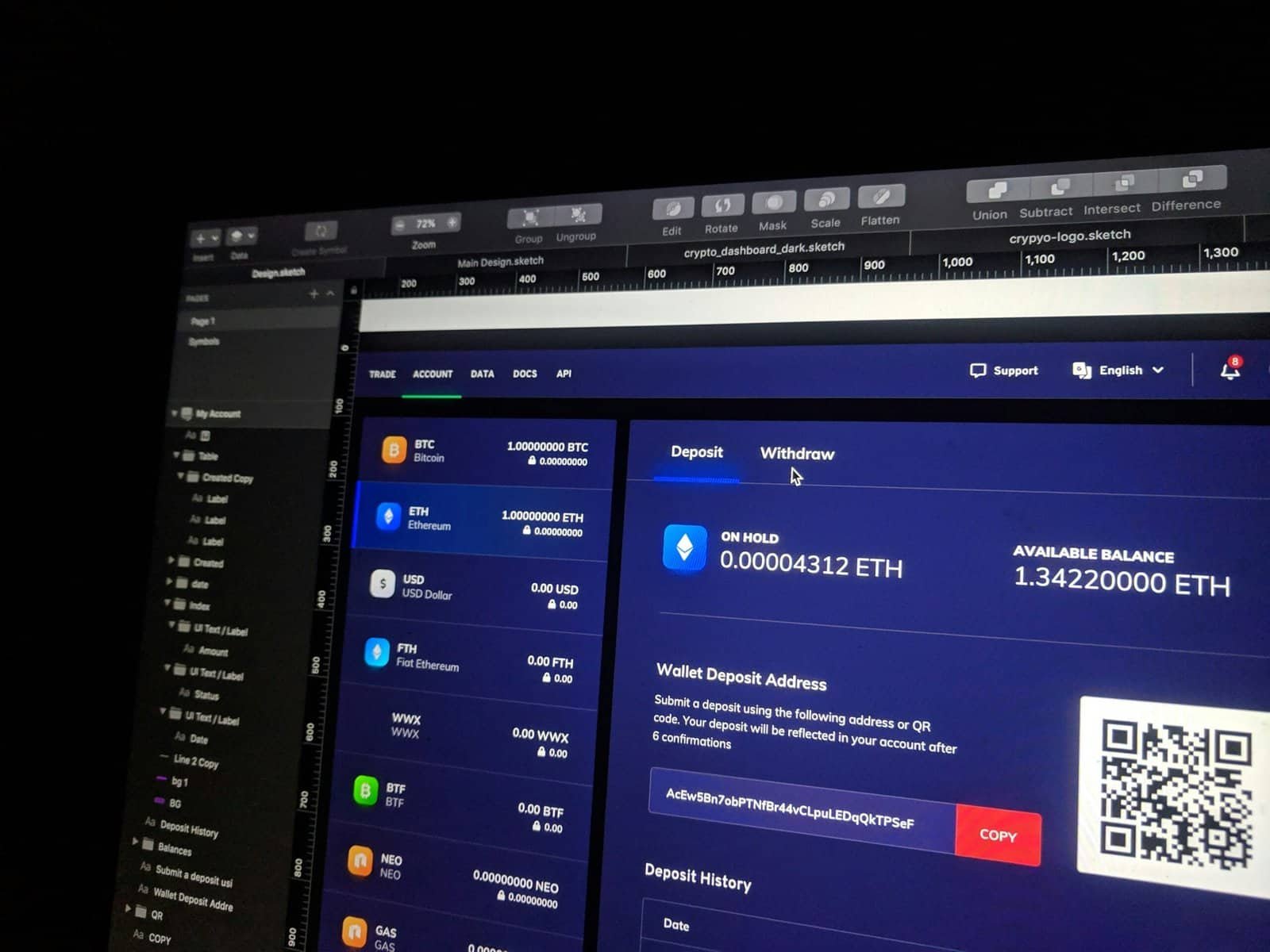? Are you trying to find the best mobile crypto exchange apps in 2025 so you can trade, stake, and manage your portfolio from your phone with confidence?
What Are The Best Mobile Crypto Exchange Apps In 2025?
The mobile crypto landscape has matured quickly, and the best apps now combine security, speed, low fees, fiat on-ramps, staking, and DeFi access. You need an app that fits how you trade, how much control you want over your keys, and which features matter most for your goals.
Why mobile crypto apps matter in 2025
Mobile apps are often the primary way people buy, sell, and monitor crypto. In 2025, apps have advanced to support real-time alerts, integrated wallets, cross-chain swaps, NFT marketplaces, and built-in analytics — all from your pocket. Choosing the right app can save you time, fees, and security headaches.
How to evaluate a mobile crypto exchange app
You should look at security, fees, asset coverage, liquidity, regulatory compliance, user experience, mobile-only features (like biometric authentication), fiat support, staking/yield products, and customer service. Each of these factors will influence how well an app fits your needs.
Top picks by category
Selecting an app depends on what matters most to you. These top picks reflect different priorities — user-friendliness, security, low fees, advanced trading, and non-custodial control.
Best for beginners: Coinbase
Coinbase remains focused on simplicity and regulatory compliance. If you want a clear interface, guided onboarding, and strong fiat support, Coinbase is a solid choice.
- Pros: Very user-friendly mobile UI, strong compliance, insured custody for custodial assets.
- Cons: Higher fees for simple buys/sells; advanced traders may prefer more features.
- Best for: You if you’re new to crypto or prefer a straightforward, regulated platform.
Best for low fees and massive liquidity: Binance
Binance continues to be a go-to for tight spreads and deep liquidity on many trading pairs. The mobile app is feature-rich and supports spot, margin, futures, P2P, and staking.
- Pros: Low fees, huge asset coverage, advanced order types.
- Cons: Regulatory limits in some countries; interface can be overwhelming.
- Best for: You if you prioritize low transaction costs and a wide asset selection.
Best for security-conscious users: Kraken
Kraken is known for conservative security practices, transparent operations, and strong customer support. Its mobile app balances security with the necessary trading features.
- Pros: Strong security history, extensive fiat pairs, transparent fee schedule.
- Cons: Not as many altcoins as some competitors.
- Best for: You if security and regulatory compliance are top priorities.
Best for integrated banking and rewards: Crypto.com
Crypto.com provides a wide ecosystem: a mobile app, Visa card, staking rewards, and yield products. The app emphasizes consumer features and rewards for active use.
- Pros: Integrated card and rewards, competitive staking yields.
- Cons: Complex fee and reward tiers; past controversies require due diligence.
- Best for: You if you want a single app for spending, staking, and trading.
Best for advanced traders: Bybit / OKX
Both Bybit and OKX offer robust mobile platforms for derivatives, perpetuals, and advanced charting. They’re optimized for active traders who need speed and variety.
- Pros: Powerful charting, derivatives, competitive fees.
- Cons: Higher risk complexity; margin trading can lead to rapid losses.
- Best for: You if you actively trade leveraged products and want full mobile control.
Best for regulated U.S. customers: Gemini
Gemini focuses on compliance and consumer protection, making it a top pick for U.S. users who want a regulated option with a polished app.
- Pros: Strong regulatory posture, insured assets, easy-to-use app.
- Cons: Higher fees than some non-U.S. competitors.
- Best for: You if you live in the U.S. and prioritize a regulated environment.
Best for DeFi and non-custodial control: MetaMask Mobile / Trust Wallet
If you want non-custodial control and access to DeFi apps (DEXs, lending, staking), MetaMask Mobile and Trust Wallet give you in-app swaps and DApp browsing.
- Pros: You control private keys; seamless DApp integrations.
- Cons: Responsibility for private keys; custodial protections don’t apply.
- Best for: You if you want direct DeFi interaction and full control over your assets.
Best for social trading and copy trading: eToro
eToro combines social features with copy trading for those who want to follow veteran traders. Their mobile offering emphasizes ease and social signals.
- Pros: Social/copy trading, fiat support, easy-to-use interface.
- Cons: Spread-based fees; limited crypto asset set compared to major exchanges.
- Best for: You if you want to mirror other traders and prefer social features.

Comparison table: quick feature snapshot
This table helps you compare core features across representative apps in 2025. Use it to shortlist which apps you should research in detail.
| App / Feature | Fiat On-Ramp | Custodial vs Non-Custodial | Staking/Yield | Derivatives | Regulated (major markets) | Best for |
|---|---|---|---|---|---|---|
| Coinbase | Yes | Custodial | Yes | Limited | Yes (US & EU) | Beginners, regulated users |
| Binance | Yes | Custodial | Yes | Yes | Partial (varies by jurisdiction) | Low fees, liquidity |
| Kraken | Yes | Custodial | Yes | Yes | Yes | Security-focused users |
| Crypto.com | Yes | Custodial | Yes | Yes | Partial | Rewards & card users |
| Gemini | Yes | Custodial | Yes | Limited | Yes (US) | US regulated users |
| MetaMask Mobile | No direct fiat | Non-custodial | Via DeFi | No direct | Non-custodial | DeFi users |
| Trust Wallet | No direct fiat | Non-custodial | Via DeFi | No direct | Non-custodial | Multi-chain wallet users |
| Bybit | Yes | Custodial | Yes | Yes | Partial | Advanced derivatives traders |
| eToro | Yes | Custodial | Limited | No | Yes (certain markets) | Social trading |
Deep dives: individual app breakdowns
These sections give you a deeper look at each major contender so you can match features to your priorities.
Coinbase (detailed)
Coinbase’s mobile app continues to emphasize a clean experience with educational resources and strong fiat support. You’ll find basic trading, recurring buys, staking for select assets, and Coinbase Pro integration for advanced trades.
- Security: Offline cold storage for most assets, bug bounty, SOC 2 compliance.
- Fees: Retail buy/sell spreads and variable fees; Coinbase Pro offers lower maker/taker fees.
- Unique: Onramp pathways, strong regulatory compliance, integrated learning rewards.
You should use Coinbase if you value simple UX and regulatory transparency, and you don’t mind slightly higher fees for convenience and reliability.
Binance (detailed)
Binance offers possibly the broadest selection of tokens and advanced trading options. The mobile app includes spot markets, futures/perpetuals, margin trading, P2P fiat, staking, farming, and a Launchpad.
- Security: SAFU fund (insurance reserve), optional advanced security features, but regulatory scrutiny in several countries.
- Fees: Tiered maker/taker discounts, BNB discounts for fees, very competitive overall.
- Unique: Massive liquidity, token listings, and a comprehensive product ecosystem.
You should use Binance if you trade frequently, need deep liquidity, and can navigate regulatory constraints in your jurisdiction.
Kraken (detailed)
Kraken emphasizes a conservative approach and strong regulatory adherence while offering margin and futures products. The mobile app supports fiat on-ramps, staking, and advanced order types.
- Security: Cold storage, strong transparency, proof-of-reserves initiatives in recent years.
- Fees: Transparent maker/taker schedule; competitive for spot trading.
- Unique: Focus on security, good customer support reputation.
You should use Kraken if security and reliable customer service matter more than bleeding-edge features.
Crypto.com (detailed)
Crypto.com’s mobile ecosystem includes a payments card, staking programs, yield accounts, and trading features in one app. It’s aimed at users who want to both spend and earn crypto.
- Security: Cold storage, insurance policies, card-linked protections.
- Fees: Competitive but tiered depending on card/staking level; complexity exists.
- Unique: Card rewards, in-app offers, staking benefits for increased perks.
You should use Crypto.com if you plan to use crypto for spending and want attractive rewards tied to staking.
Gemini (detailed)
Gemini provides a polished mobile app with strong compliance. You’ll find spot trading, recurring buys, staking via Gemini Earn (availability subject to regulation), and insured custody.
- Security: Insured custodial holdings, robust KYC/AML procedures.
- Fees: Higher than discount exchanges but clear and regulated.
- Unique: Strong focus on institutional-grade compliance and consumer protections.
You should use Gemini if you want a regulated U.S.-friendly option with strong consumer safeguards.
MetaMask Mobile (detailed)
MetaMask Mobile is a non-custodial wallet with a built-in DApp browser and swap aggregator. You control your private keys and can connect to DeFi protocols directly from your phone.
- Security: You control keys; use a secure seed phrase and hardware wallet integration for higher security.
- Fees: No platform trading fees; network gas fees apply for swaps.
- Unique: Seamless DeFi connections, cross-chain via built-in bridges and aggregators.
You should use MetaMask Mobile if you want full control over keys, access to decentralized finance, and are comfortable managing private keys.
Trust Wallet (detailed)
Trust Wallet supports many blockchains and integrates DEX swaps, staking, and NFT viewing. It’s a straightforward mobile wallet for non-custodial users.
- Security: Non-custodial, local key storage, optional biometric lock.
- Fees: Swaps depend on DEX liquidity and network fees.
- Unique: Broad multi-chain support and ease of use for token swaps.
You should use Trust Wallet if you want a simple multi-chain wallet with DApp integrations.
Bybit (detailed)
Bybit’s mobile platform focuses on derivatives and rapid order execution. It also supports spot trading, staking, and copy trading features.
- Security: Industry-standard measures, but custodial model.
- Fees: Competitive maker/taker fees on derivatives.
- Unique: Mobile-first derivatives trading and advanced charting tools.
You should use Bybit if derivatives trading is your priority and you need a responsive mobile app for fast execution.
eToro (detailed)
eToro provides a socially-driven trading app with copy trading and fractional crypto purchases. It’s aimed at users who want community insights and an easy fiat on-ramp.
- Security: Custodial model with regulatory oversight in certain jurisdictions.
- Fees: Spread-based pricing; watch spreads for long-term holding costs.
- Unique: Copy trading and social feed to learn from other traders.
You should use eToro if social features and copying experienced traders appeal to you.

Fees and cost considerations
You should always be aware of fee structures before committing funds. Fees vary by app and can include:
- Trading fees: maker/taker or spread-based.
- Deposit/withdrawal fees: fiat bank transfers may be free or charged.
- Network fees: blockchain gas fees for on-chain transfers or swaps.
- Staking/yield fees: platform may take a commission from earned rewards.
- Hidden spreads: simple buy/sell interfaces can hide wider spreads.
Compare fees in the exact use case you plan to run — occasional buys, frequent trading, large withdrawals, or DeFi swaps — because some apps are optimized for one pattern but costly in another.
Security checklist for mobile crypto apps
Security should be non-negotiable. Here’s what you should do when using a mobile exchange app.
- Use biometric authentication and a strong device passcode.
- Enable two-factor authentication (preferably an authenticator app, not SMS).
- Verify app authenticity by downloading from official app stores and checking publisher details.
- Keep your phone OS and the app updated.
- Use hardware wallet integration for large holdings where possible.
- For non-custodial wallets, store seed phrases securely offline and never share them.
- Limit permissions and be cautious with deep-linking to unknown DApps.
If an app offers advanced safety features such as withdrawal whitelists, address allowlists, or cold-storage attestations, consider using them.

How to migrate between mobile apps safely
If you want to switch apps, take careful steps so you don’t lose funds or expose keys.
- For custodial-to-custodial moves: double-check deposit addresses, start with a small test transfer, then transfer the remainder.
- For custodial-to-non-custodial: create a new wallet, secure the seed phrase offline, and send funds in test amounts first.
- For non-custodial-to-custodial: copy the custodial deposit address carefully; beware of copying from clipboard on compromised devices.
- Keep transaction receipts and confirm on-chain transactions via block explorers.
Always confirm addresses and transaction details on your device before sending funds.
Regulatory and geographic considerations in 2025
Regulation continues to shape which apps are available to you. In 2025 you should expect:
- Some exchanges to restrict services in certain countries due to licensing.
- KYC/AML requirements for fiat on-ramps and higher withdrawal limits.
- Regional differences in staking/yield product availability due to securities law.
- Increased transparency and proof-of-reserves requests from users.
You should check an app’s availability and legal status in your jurisdiction before depositing fiat or large sums of crypto.

Mobile features to look for in 2025
Mobile-first features make a real difference in day-to-day use:
- Real-time price alerts and customizable notifications.
- Biometric sign-in and device binding.
- In-app staking, lending, and yield products with clear terms.
- Integrated DApp browser for DeFi users.
- Portfolio analytics and tax reporting exports.
- Push-based security confirmations for withdrawals.
Prioritize the features that align most with how you use crypto: quick trades, long-term staking, or active DeFi involvement.
Staking and yield: what to watch for
Staking and yield products can boost returns, but you should consider:
- Lock-up periods and early withdrawal penalties.
- Underlying validator slashing or smart contract risk.
- Platform commissions on earned rewards.
- Regulatory classification of yield products in your country.
You should calculate net APY after fees and consider the counterparty risk posed by custodial platforms.

Non-custodial vs custodial: which is right for you?
Deciding between custodial exchanges and non-custodial wallets depends on your risk tolerance and technical comfort.
- Custodial: Easier, often insured, supports fiat on/off ramps and card integrations. You trade convenience for control.
- Non-custodial: Full control, necessary for many DeFi activities, but you bear full responsibility for securing keys.
You should consider a hybrid approach: keep a small active amount on custodial apps for convenience and a larger long-term stash in non-custodial storage or hardware wallets.
Tax and reporting considerations
Crypto tax rules have become stricter. You should:
- Keep transaction logs and exportable trade histories from the app.
- Use apps or services that provide tax-reporting tools or CSV exports.
- Be aware of taxable events: trades, swaps, staking rewards, airdrops, and NFT sales.
- Consult a tax professional in complex situations or for large holdings.
Good record-keeping will save you time and stress during tax season.
Common pitfalls to avoid
You can prevent common mistakes with a little care:
- Don’t keep all funds on an exchange unless you need exchange services.
- Don’t click links in unsolicited messages promising investment returns.
- Don’t reuse addresses indiscriminately across chains.
- Don’t assume new tokens listed on an app are safe; DYOR (do your own research).
- Avoid giving copy-paste access to seed phrases or private keys.
Staying cautious protects your funds and your privacy.
How to test an app before committing funds
Before you move large sums, run a small test:
- Create the account and complete KYC if required.
- Deposit a small fiat amount or transfer a small crypto amount.
- Try buying and selling, initiating a withdrawal, and using staking if you plan to stake.
- Test customer support responsiveness by opening a small ticket or using chat.
A small test run reveals UX issues, hidden fees, or customer service lag.
Frequently asked questions (FAQs)
You should know answers to these common questions before choosing an app.
Q: Can I use multiple apps at once? A: Yes — using multiple apps lets you diversify counterparty risk. Keep exchange accounts for trading and non-custodial wallets for long-term holdings.
Q: Are mobile apps secure enough for large holdings? A: Mobile apps can be secure, but large holdings are better protected on hardware wallets or in institutional-grade custody. Use mobile apps for convenience and active positions.
Q: How do I check if an app is regulated? A: Check the app’s website for licensing information, regulatory disclosures, and links to local licenses. Regulatory status can change, so verify before depositing.
Q: Are in-app staking rewards guaranteed? A: No — staking rewards depend on network performance, validator behavior, and platform policies. Read terms and check if the platform takes a commission.
Final recommendations: choosing your ideal app
To decide, ask yourself these questions:
- Do you want full control or convenience?
- Are low fees or compliance more important?
- Will you trade frequently or hold long-term?
- Do you plan to use DeFi, NFTs, or fiat spending cards?
If you want simplicity and regulation, consider Coinbase or Gemini. If you trade actively and need low fees, Binance or Bybit may fit. If you want DeFi and custody of your keys, use MetaMask Mobile or Trust Wallet alongside a hardware wallet.
Conclusion
You have many solid mobile crypto exchange apps to choose from in 2025, each suited to different needs. Prioritize security, check regulatory status, compare fees for your pattern of use, and test with small amounts before scaling up. With the right app and good security habits, you can manage crypto confidently from your phone while taking advantage of staking, DeFi, and fast trading when you need them.
